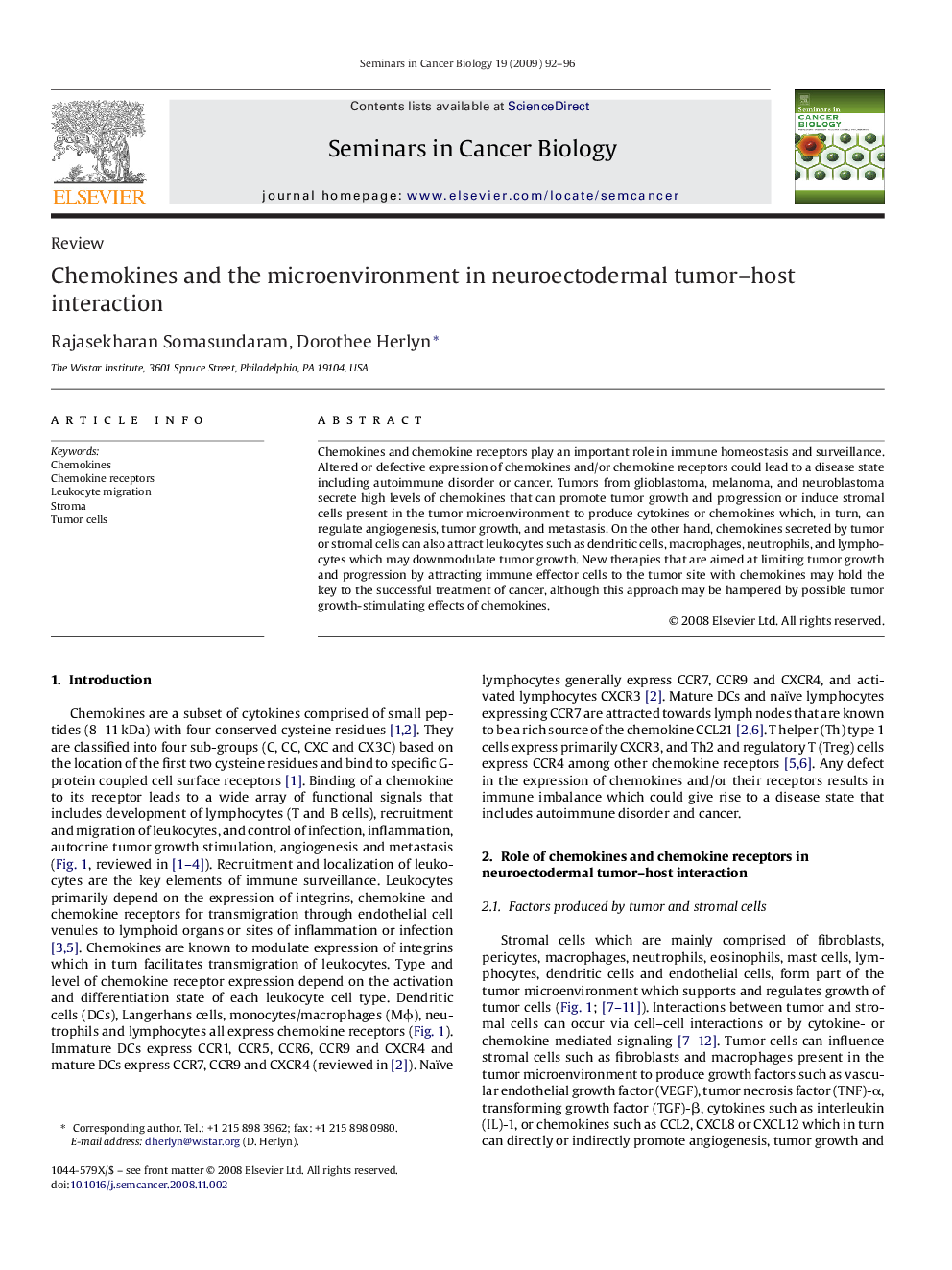| Article ID | Journal | Published Year | Pages | File Type |
|---|---|---|---|---|
| 2024167 | Seminars in Cancer Biology | 2009 | 5 Pages |
Chemokines and chemokine receptors play an important role in immune homeostasis and surveillance. Altered or defective expression of chemokines and/or chemokine receptors could lead to a disease state including autoimmune disorder or cancer. Tumors from glioblastoma, melanoma, and neuroblastoma secrete high levels of chemokines that can promote tumor growth and progression or induce stromal cells present in the tumor microenvironment to produce cytokines or chemokines which, in turn, can regulate angiogenesis, tumor growth, and metastasis. On the other hand, chemokines secreted by tumor or stromal cells can also attract leukocytes such as dendritic cells, macrophages, neutrophils, and lymphocytes which may downmodulate tumor growth. New therapies that are aimed at limiting tumor growth and progression by attracting immune effector cells to the tumor site with chemokines may hold the key to the successful treatment of cancer, although this approach may be hampered by possible tumor growth-stimulating effects of chemokines.
